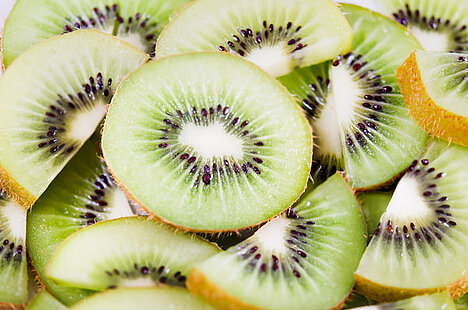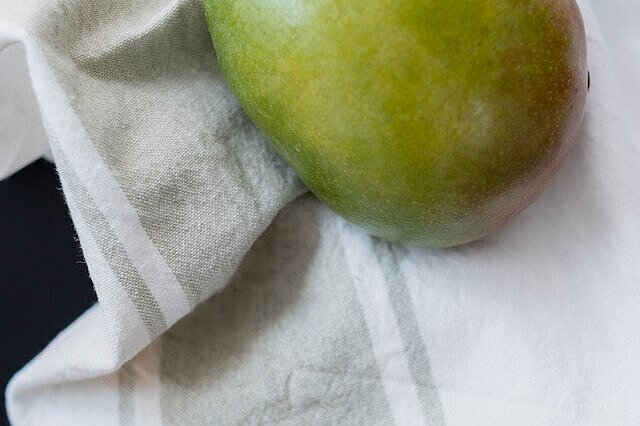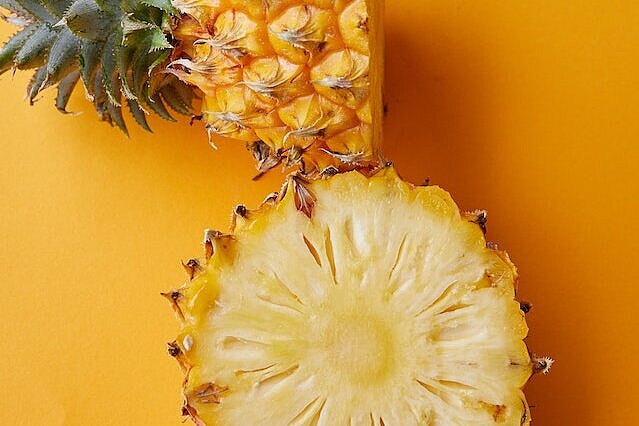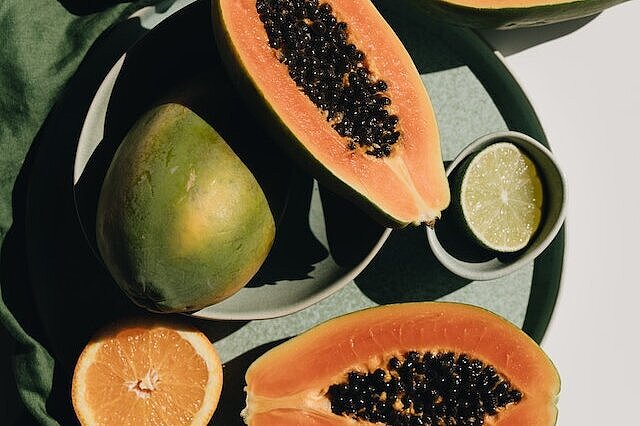Kiwi

But is kiwi also suitable for dogs? Can you give your four-legged friend this fruit as a snack or supplement to their food? In this article, you'll find out everything you need to know about kiwi in relation to dogs.
The benefits of kiwi for dogs
Kiwi has some health benefits for dogs that you shouldn't underestimate. Firstly, kiwi can boost your dog's immune system as it contains a lot of vitamin C. Vitamin C is an important antioxidant that fights free radicals and inhibits inflammation. Vitamin C can also promote iron absorption and accelerate wound healing.
Kiwi can also improve your dog's digestion as it contains a lot of fiber. Dietary fibers are indigestible plant components that stimulate intestinal activity and regulate the consistency of faeces. They can also prevent constipation or diarrhea and increase the feeling of satiety.
In addition, kiwis can lower your dog's blood pressure as they contain a lot of potassium. Potassium is a mineral that regulates the body's water balance and stabilizes blood pressure. A lack of potassium can lead to cardiac arrhythmia or muscle weakness.
The disadvantages of kiwi for dogs
However, kiwi also has some disadvantages for dogs that you should be aware of. Firstly, kiwifruit can cause allergies or intolerances if your dog is sensitive to this fruit. Symptoms can include itching, skin rash, vomiting or diarrhea. If you notice that your dog shows such signs after eating kiwi, you should consult a vet immediately.
Secondly, kiwi can increase your dog's blood sugar levels as it contains a lot of fructose. Fructose is a type of sugar that quickly enters the bloodstream and raises blood sugar levels. This can be problematic for dogs with diabetes or who are overweight.
Kiwi can also damage your dog's teeth as it contains a lot of acid. Acid attacks tooth enamel and promotes tooth decay and tartar. You should therefore always brush your dog's teeth or give him a tooth-cleaning toy after eating kiwi.
How much kiwi can my dog eat?
If you want to give your dog kiwi, you should follow a few rules. Firstly, you should only ever use ripe kiwis, as unripe kiwis are too acidic and can cause stomach problems. Secondly, you should only ever give small amounts, as too much kiwi can lead to digestive problems or blood sugar fluctuations.
As a rule of thumb, one teaspoon of kiwi flesh per kilogram of body weight per day is sufficient for your dog. This means, for example: If your dog weighs 10 kilograms, you can give him about two teaspoons of kiwi flesh a day.
You should also always remove the skin, as it is too hard and can get caught in the intestines. You should also remove the seeds, as they can contain cyanide, which is poisonous to dogs.
Kiwi is a delicious and healthy fruit for dogs that can strengthen the immune system, aid digestion and lower blood pressure. However, you should always be careful and only give small amounts, as too much kiwi can cause allergies, intolerances or dental problems.
If you notice any signs of hypersensitivity or poisoning in your dog, you should see your vet immediately. We are not a substitute for a vet, but we try to be as accurate as possible. Every dog reacts differently and we recommend you get a second opinion or consult your vet if in doubt.
Stay healthy and take good care of your four-legged friend!😊
Similar to Kiwi
Strawberries are not real berries, but aggregate fruits. This means that the small yellow seeds on the red surface are the actual fruits, which are surrounded by a fleshy receptacle. Strawberries...
What is a mango? A mango is a stone fruit that grows on a tree. It has a yellow to orange color and a sweet taste. The skin of the mango is not edible and must be removed. There is a large pit inside...
Pineapple is a plant from the bromeliad family, which is native to South America. The fruit consists of many individual berries that have grown together to form a large cone. The skin is hard and...
Papaya (Carica papaya) is the only species of the plant genus Carica within the melon tree family (Caricaceae). The plant is often referred to as a tree, but is actually a large, herbaceous plant...



